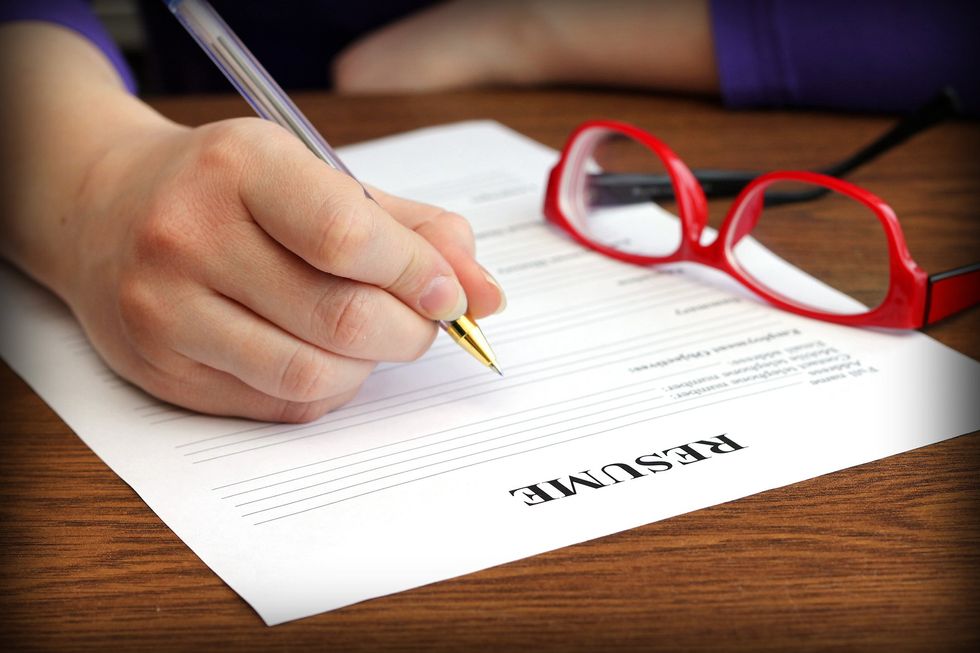If you're like me, your career (or future career) is very important to you. You want to succeed in your field and get that dream job. To do that, you must first gain relevant experience that could give you skills that your dream career requires. Then, you must write a resume.
Here are some steps to follow for a killer resume:
1. Keep it to one page
Recruiters and employers don't have time to look through pages of a resume. They will lose interest quickly. Your goal is to show a hiring manager the most, useful information in as little space and time as possible. Show them how awesome you are without taking up their time.
2. Separate into sections
NO PARAGRAPHS. Again, you want this to be short and easy to read. Section headers could include Contact Information, Experience, Education, Employment, etc. Split them up so a recruiter can simply skip to whichever part they are interested in.
3. Focus on career-related experience
Yes, if you have to use your fast food job on your resume to fill up space, do it. But, if it's between your summertime grocery store job and an internship or career-related campus organization, choose the latter. They won't care that you used to work as a waitress somewhere. They will care if you've gotten experience that pertains to the job they are hiring for.
4. Focus on your titles/leadership experience
Similar to the last one, don't put the companies or organizations you worked at first. Always put your position first, especially if you had a specific title. They care about what you did at the company, not necessarily where you worked. Depending on where it was, hiring managers might not even have ever heard of the company before. So why lead with that? Start by telling them what you did for the organization.
5. O*Net Online is helpful
O*Net Online is a website that will help you with your job descriptions. Found here, this site uses your title to show you possible descriptions that employers and recruiters actually use to describe similar positions. With this tool, you can speak their language on your resume. Please note that you don't have to (and shouldn't) just copy and paste. Use O*Net's words and tailor it to what you actually did.
6. Got a portfolio or LinkedIn? Use it.
If you have a website or a LinkedIn account, put the links in your resume. Give recruiters something else to intrigue them without overbearing them in the resume. You're presenting them with a next step to learn more about you. It also shows that you are professional enough to have your experience and work samples on the internet.
7. Clean it up
Go through your resume after you write it and make sure everything in it is necessary. One page is not a lot, especially if you've gotten the experience that you need. Be wise in what you choose to leave in the resume. Make sure it looks nice. If it's messy, or the margins are weird or the font is unreadable, that is a pass from employers. Also, do not lie on your resume. Imagine if you got a job, but they thought you could do something that you've never done before. You'd fail and probably be fired. To be honest though, if you lie on your resume, they will probably find out in your interview. Just don't do it.
8. Tailor your resume to each job
This is the most important tip I can give. When applying, always read through the job description and pick out words from the qualifications section. Then, use those words within the resume. Most larger companies use machines to screen resumes before they go to a real person. If the machine doesn't pick up any words that fit the job description, it will not get picked by a recruiter. Use their words, use their words, use their words. I cannot say it enough.
9. Once it's written, USE IT
This does not just mean to upload it when applying for jobs (though obviously, you should). Anytime you talk to a recruiter, email a professor or reach out to someone over LinkedIn, be prepared with your resume in your back pocket. You never know who could get you a job. Also, when you go to an interview, bring a copy of your resume with you. They might not have it printed out or might not have an updated one. Showing that you mean business and are prepared are good employee characteristics.
Resume writing is a weird experience and most people don't do it regularly. But having an updated and clean-looking resume can be the difference between a job offer and not even getting an interview. Show potential employers that you are the best fit for them. Give them a reason to want to talk to you. Good luck!
Need some tips for going into an interview? Read my article found here!




 Energetic dance performance under the spotlight.
Energetic dance performance under the spotlight. Taylor Swift in a purple coat, captivating the crowd on stage.
Taylor Swift in a purple coat, captivating the crowd on stage. Taylor Swift shines on stage in a sparkling outfit and boots.
Taylor Swift shines on stage in a sparkling outfit and boots. Taylor Swift and Phoebe Bridgers sharing a joyful duet on stage.
Taylor Swift and Phoebe Bridgers sharing a joyful duet on stage.













